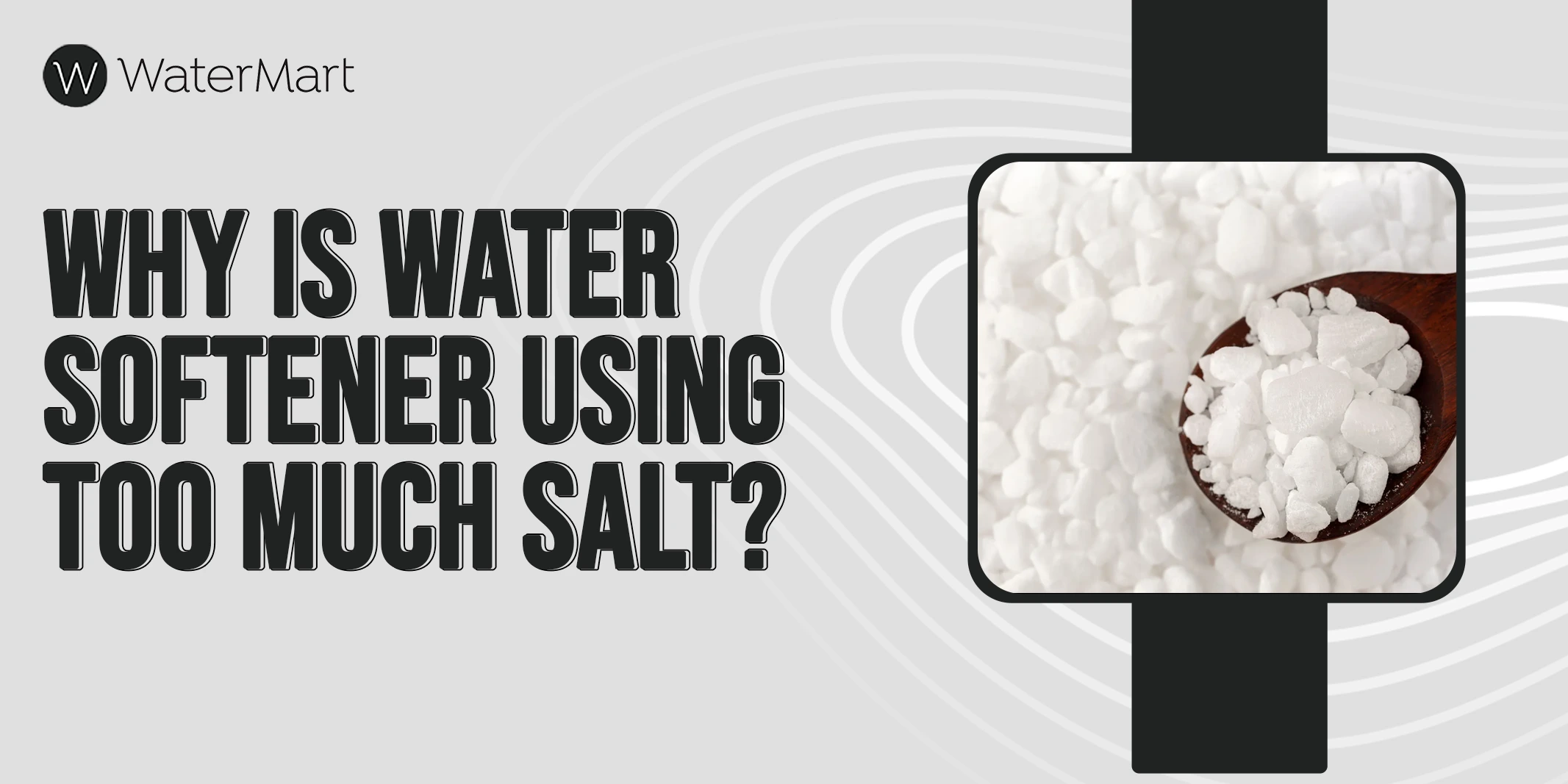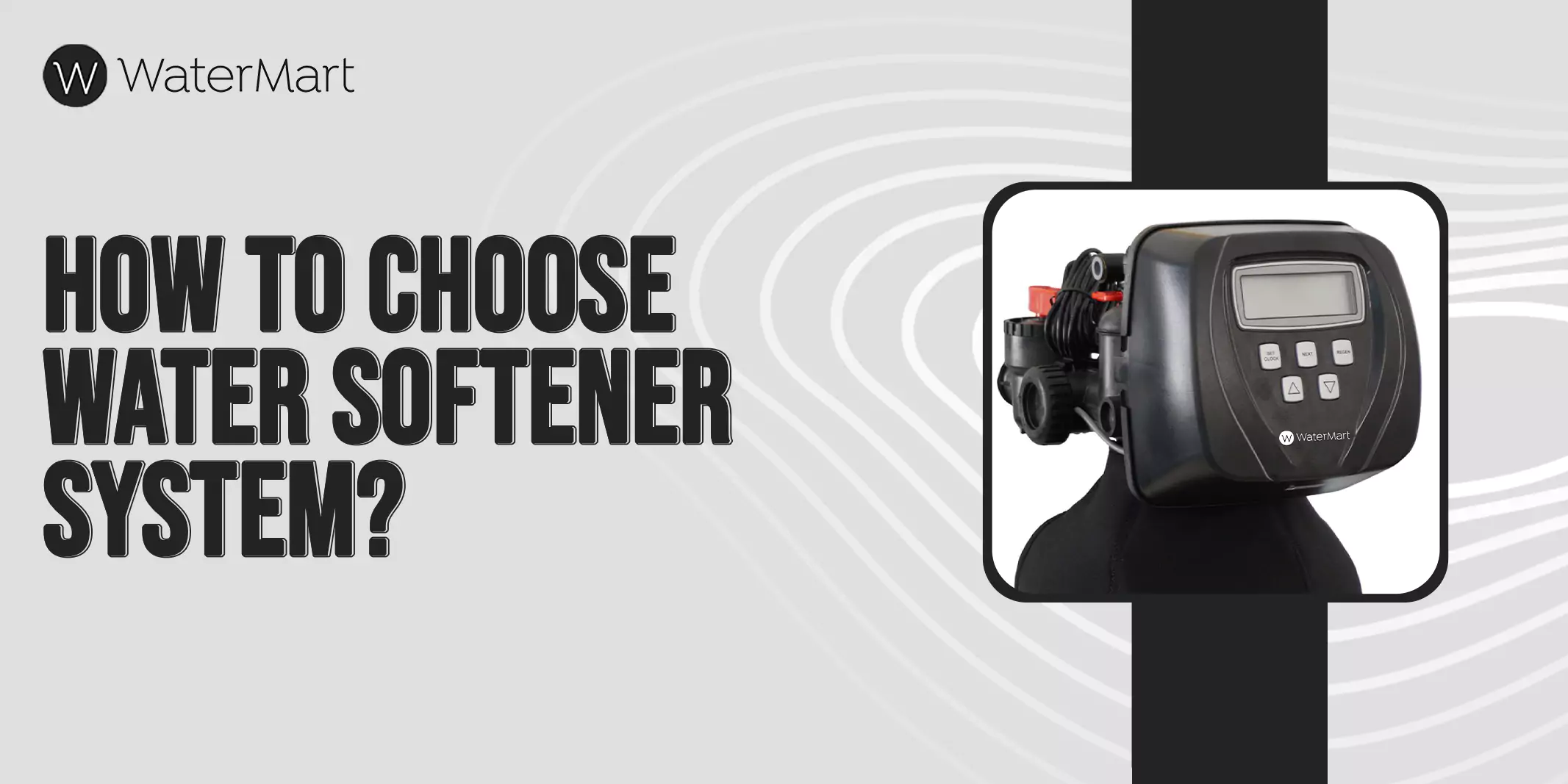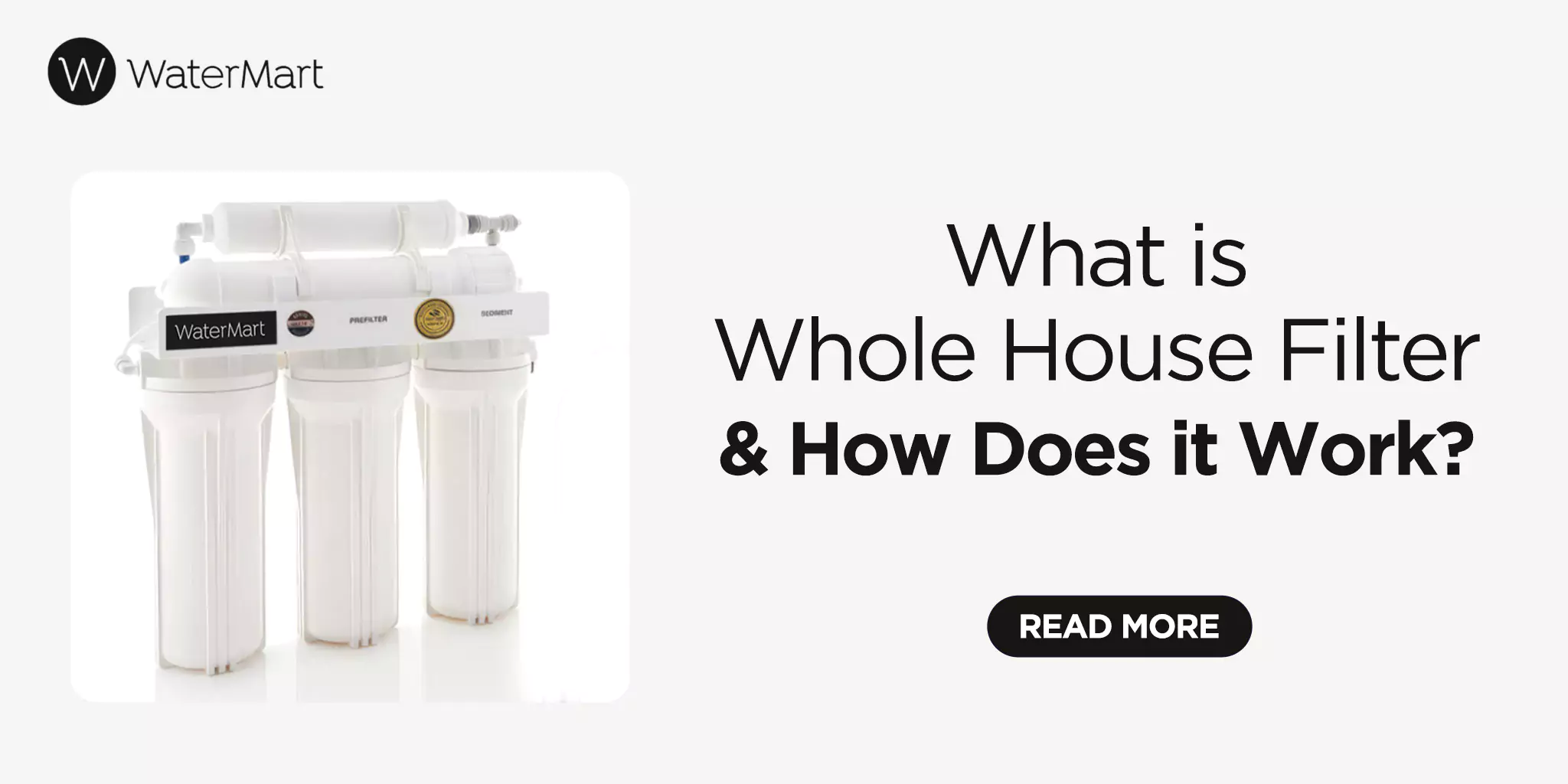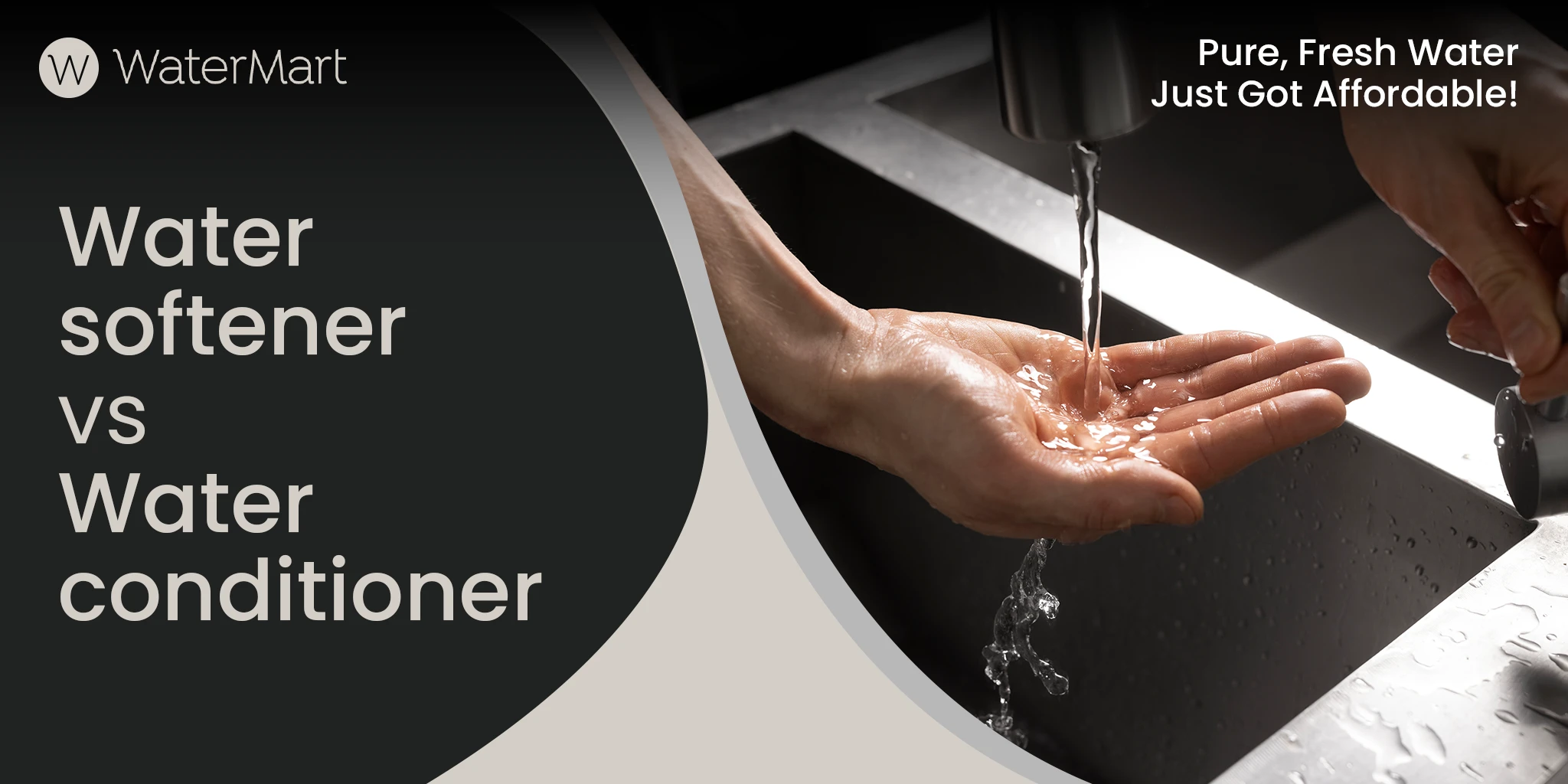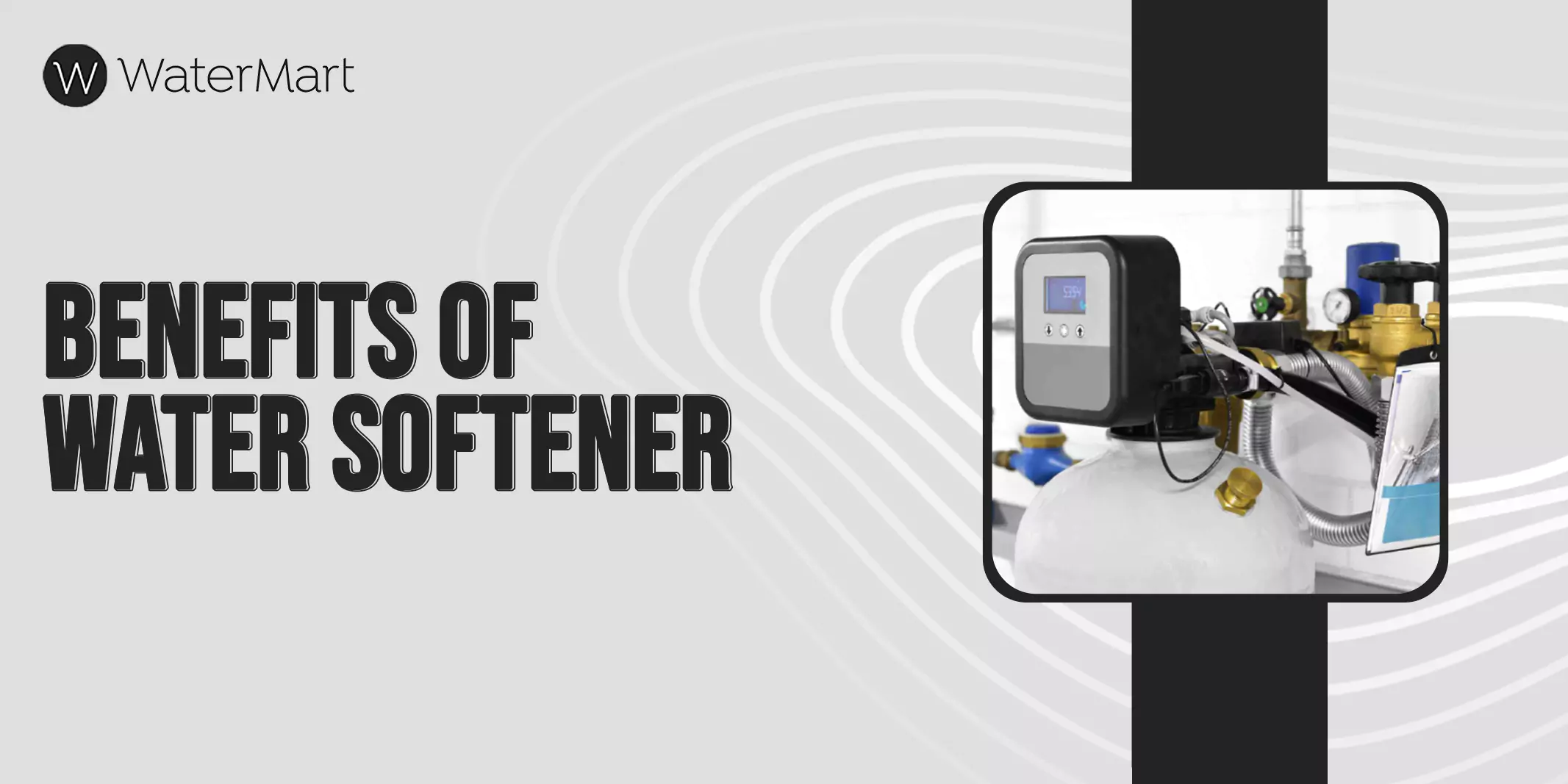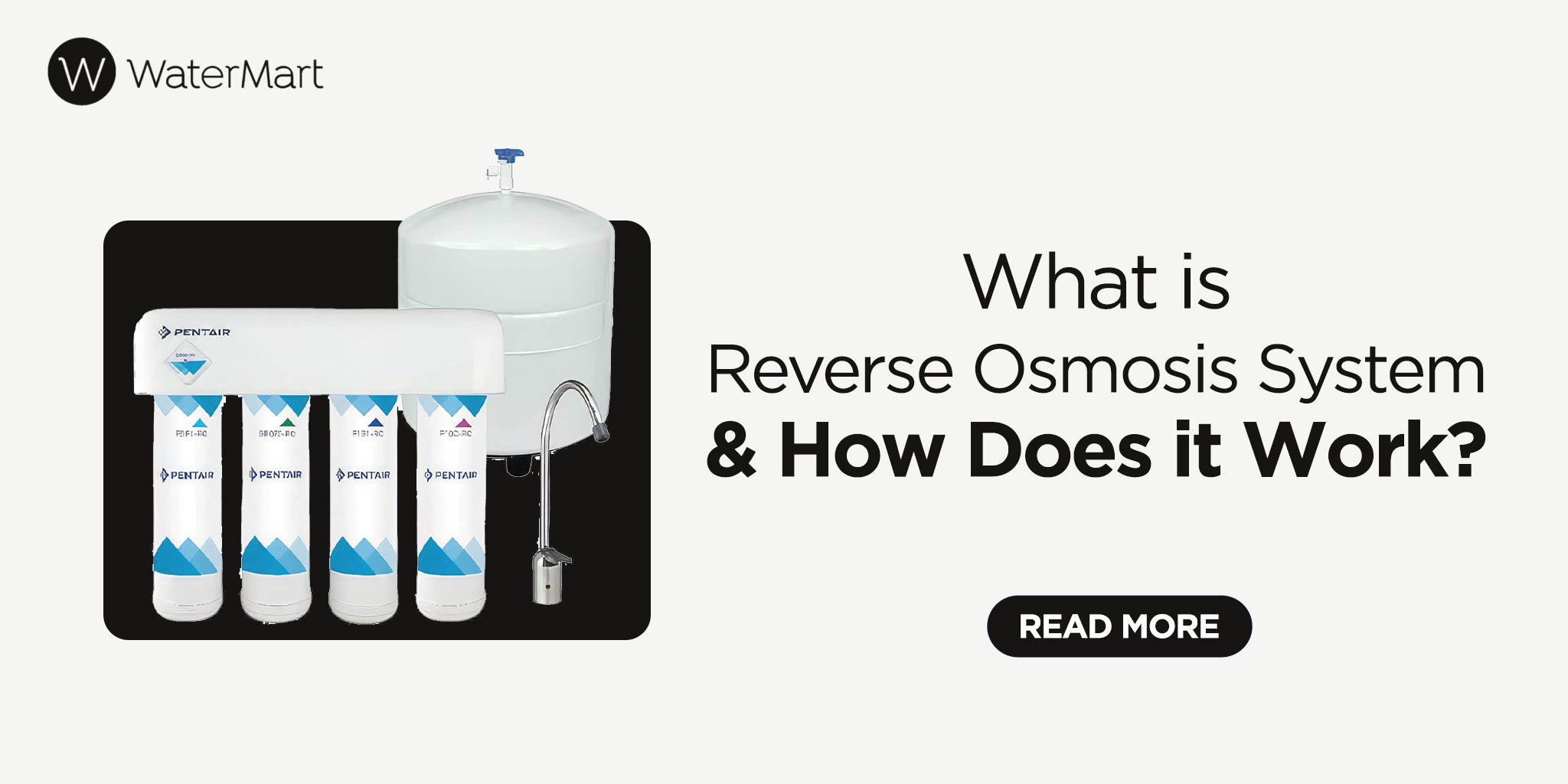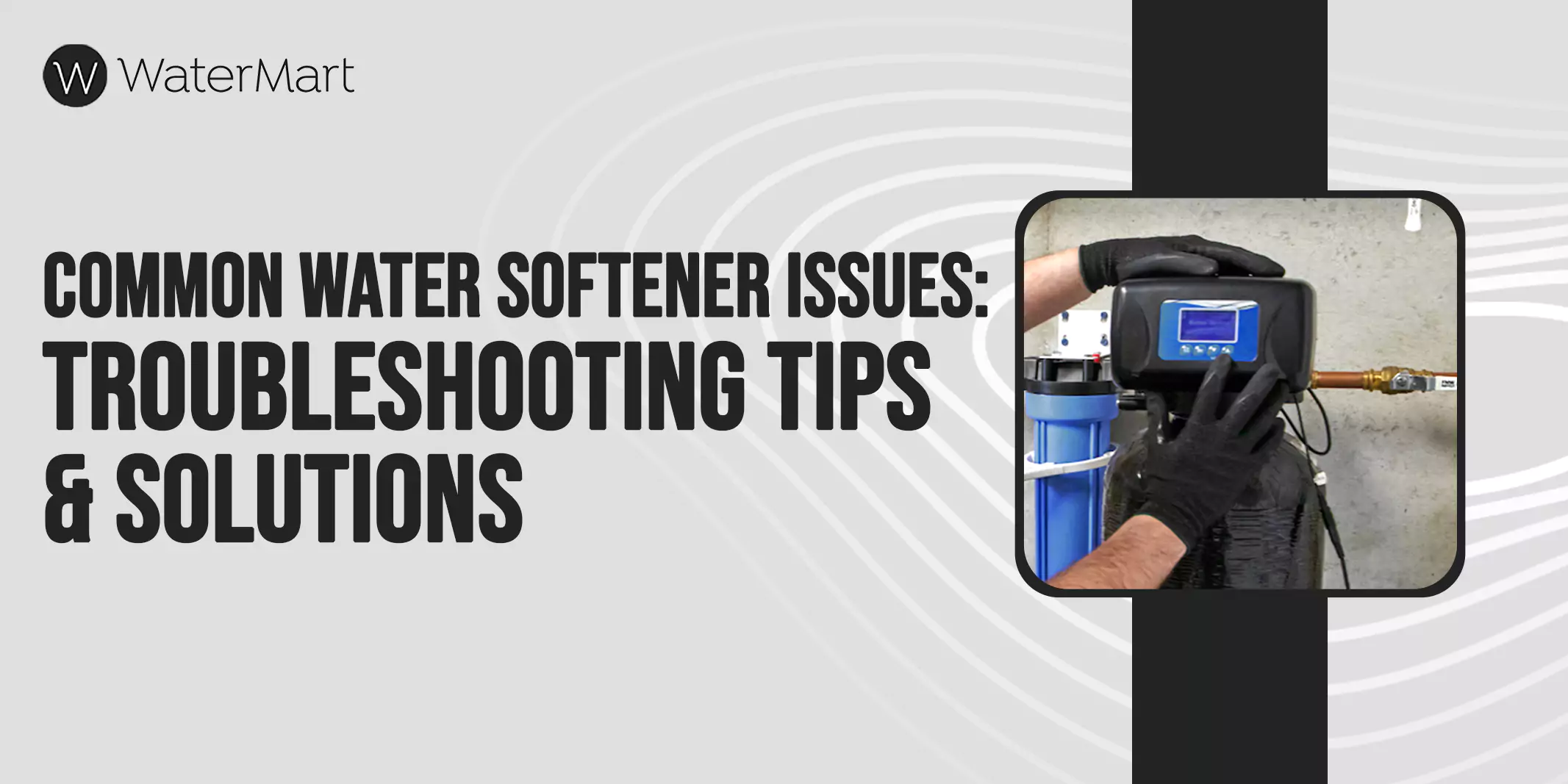Your cart is currently empty!
Water Softener Using Too Much Salt
Water softener maintenance is generally good for long-term cost savings, but if your water softener is using too much salt, there may be a system fault. Water softener gobbling salt (and money) faster than it should is a sign that something’s wrong. Excessive salt use can drive up costs, flood your drain with brine, and even shorten the life of your system. A properly tuned softener minimizes salt consumption while keeping your water scale-free.
In Canada, water hardness varies across neighborhoods, making it challenging for homeowners to manage salt effectively in their water softeners. Learn what causes it and when to call a WaterMart specialist for a full tune-up.
How Much Salt Use Is Too Much?
It’s a common question: How much salt does a water softener use? On average, a water softener should use about 40 to 80 pounds of salt per month for a four-person household. This number assumes moderately hard water and a properly programmed system.
But if you’re refilling your brine tank every couple of weeks, your system might be using way more salt than needed. That’s not only bad for your wallet, it’s hard on your softener, too. Here’s a quick breakdown:
- 2-person household: 20–40 lbs/month
- 4-person household: 40–80 lbs/month
- 6-person household: 60–120 lbs/month
This analysis of salt per month is for summer. Lawn watering, gardening, pool filling, extra showers, and houseguests drive up water demand, so the softener regenerates more frequently. In cooler months (or when you’re away), usage usually drops.
To keep things optimized, keep your brine tank between about ¼ and ½ full of salt, and always above the water line. Don’t fill it to the top, as leaving air space helps prevent salt “bridges.” A good rule of thumb is to keep the tank around half full and check salt levels every 3-4 weeks. Being aware of how water softeners work makes it easier to adjust settings and maintain optimal salt levels throughout the year.
Signs Your Water Softener Is Using Too Much Salt
Wondering if your system’s overdoing it? Here are five common signs to watch out for, and how to recognize them before they start costing you.
Salt Levels Drop Too Quickly
If your salt supply is vanishing faster and you are putting too much salt in the water softener than the averages mentioned above, you should investigate. This suggests aggressive regeneration cycles or overly high hardness settings. Track your salt usage over 30 days. Notice a sudden spike without a big change in water usage? Something’s off.
Excess Salt Build-Up
Crusty salt buildup around the tank lid or inside the brine tank is a common sign of overuse, or worse, salt bridging. Check it by opening the tank. If you see hardened salt rings or sludge at the bottom, the system may not be using salt efficiently.
Water Feels Slippery or Soapy
Soft water lathers up quickly and feels smooth, not slimy. If your water feels overly slippery, it might be a sign that your water softener is too salty during the regeneration process. It indicates too many regeneration cycles or poor rinsing from incorrect settings or leaks allowing brine into the water. You can spot it if your soap or shampoo feels difficult to rinse off fully, especially in showers or sinks.
High Water Bills
Excessive regeneration cycles mean more water is used, and that hits your utility bills. If your water bill jumps without changing or increasing water usage, check for hidden water use. Even a slow leak wastes water tremendously, forcing your softener to regenerate more often. Do a simple leak test (watch your water meter with all taps off) or compare your current water bill to previous months.
Salt Level Doesn’t Go Down
This might seem opposite to excessive use, but it can still signal a problem. Check for a salt bridge (solid crust) or “salt mush” at the bottom. Add salt, and if nothing happens, it means that the salt is bridging, or the brine valve isn’t drawing correctly.
In other words, salt sitting idle means the system’s running cycles but not softening water. So it’s wasting water, not salt, and could even overflow the tank. To prevent this, make sure your water softener salt level setting is correct, aim to keep the salt just above the water level in the brine tank to maintain proper dissolving and avoid buildup.
Reasons Your Water Softener Is Using So Much Salt & How to Fix?
If you are asking yourself, “Why is my water softener suddenly using too much salt, There’s rarely one reason for excessive salt usage; usually, it’s a combination of settings, equipment age, and system type. Here are the most common causes and how to fix them.
Overestimated Hardness Settings
Many homeowners guess their water hardness, or crank it too high, thinking “more is better.” But high hardness settings force the system to regenerate more often than necessary. Get your water tested or use a water hardness test kit. According to testing, Toronto averages around 7-10 grains per gallon, but it can vary by neighborhood.
Adjust your softener to match actual hardness levels. This can reduce salt usage by 30- 40%. Get a free water test from WaterMart today.
Inefficient Regeneration Algorithm (Timer-Based Systems)
Older “timer” softeners regenerate on a fixed schedule (e.g., every 3 days) regardless of usage. This means the system regenerates whether you’ve used water or not.
Review your softener’s settings. If it’s set to regenerate every X days (and X is small), or if it lacks a usage meter, it’s timer-based. Check your manual under “time clock” or “timer regen”. Switch to a metered or demand-initiated regeneration system. Consider a technician if your model isn’t easily converted.
Excessive Reserve Capacity
Some systems (with high reserve buffer) are set too high (40–50%), so the unit regenerates earlier and more often, wasting salt. Review your settings. If your system keeps a large reserve “just in case,” that’s likely salt waste. Reduce the reserve setting to about 20–25% by yourself (which is usually enough to avoid running out of soft water).
Improper Resin Bed Sizing
Too large a resin bed for your needs can lead to over-regeneration, while too small a bed works too hard. Confirm your water softener size matches your home’s usage. A 32,000-grain system is ideal for most 3-4 person households.
If the resin type is wrong, it must be replaced with the correct grade (e.g., standard 8% crosslink resin for general hardness). Consult a water treatment specialist to resize or replace the unit if needed.
High Salt Dose Programming
Some systems are programmed to regenerate with high salt doses by default. More salt doesn’t always mean better softening. Look for settings that allow salt dosage adjustment; many modern units do. Consult your softener manual for the correct salt dose (often around 10–15 lb per ft³).
Reduce the salt dose to the manufacturer’s lowest recommended setting for your hardness level. Test for softness afterward and fine-tune if needed.
Malfunctioning Brine Valve
If your softener isn’t drawing brine or floods the tank, the brine valve might be clogged or stuck. During regeneration, watch if water moves through the valve. If it doesn’t, clean the brine valve parts and nozzle using vinegar or warm water. If you’re confident, DIY cleaning works (guides online show how). Not comfortable, or the valve keeps failing? Call a technician to rebuild or replace the valve assembly.
Brine Line Leaks or Clogs
A pinhole leak or clog in the brine line blocks brine flow, so your softener can’t regenerate properly. Meaning it uses more salt and gives poor results. Check for cracks, kinks, or loose fittings. You can flush simple clogs yourself. If there’s no suction during brine draw or the tubing’s brittle, it’s best to replace it. For stubborn blockages or suspected internal leaks, book a technician for a pressure test and to replace sections of the line.
Incorrect Water Level in Brine Tank
Too much or too little water in the brine tank messes up regeneration. High water wastes salt, and low water means weak brine. The tank should have only a few inches of water when idle. Adjust the float valve or replace it if broken. But if water levels don’t stabilize or overflow, have a specialist check for internal leaks or faulty valves.
Bridging and Mushing Issues
A salt bridge forms a crust that blocks salt from dissolving, whereas mushing creates a sludge at the bottom. Both waste salt and weakened regeneration. Tap the tank to check for hollowness (a bridge) or dig to feel mush. Break the bridge with a broom handle; scoop out sludge. Buy pellet-form softener salt and pour it directly into your softener’s brine tank after cleaning.
If bridging recurs frequently despite fresh salt and proper levels, it’s worth getting a technician to check humid conditions, tank vents, or upgrade salt type.
Worn or Degraded Resin Beads
Resin beads wear out over time, typically after 10–15 years. Worn resin means your system constantly regenerates but doesn’t soften water, wasting salt. If your water stays hard after softening or if you find sand-like particles, your resin likely needs replacing. Replacing the resin bed is messy and technical; get a professional to do it right without risking leaks.
Faulty Control Head / Programming Errors
If your water softener recharges too often, it might be misprogrammed. Check the settings, especially “max days between recharges.” If it’s too low or reset after a power outage, salt use will spike. Reset the value higher or turn the feature off. But if the screen glitches or settings won’t hold, a malfunctioning control head might need repair or replacement by a technician.
Excessive Backwash Time
Backwash should only last 5-15 minutes. If it runs longer, it can waste water and reduce brine efficiency. Check your display during regeneration. If “backwash” lingers too long, adjust the time or reset the control. Make sure your drain isn’t clogged. You can fix most timing or blockage issues yourself. But if the control unit ignores settings or the timer gets stuck, professional help is your best bet.
If your softener keeps falling short, it might be time to switch to a WaterMart water softener built for consistency.
When Should You Call a Water Softener Specialist?
If you’ve run through the checklist above and your salt problem still isn’t solved, it’s time to bring in a professional. Issues like brine valve replacements, resin upgrades, or full system diagnostics are best handled by experts to avoid damaging parts of the water softener system. At WaterMart, we offer complete water softener inspections, maintenance, and upgrades all across Canada.
Final Thoughts
A water softener using too much salt is wasteful and expensive. Most of these issues are fixable with the right approach, like wrong settings and simple oversights. But if you have no idea about your water’s “hardness”, the first step should be finding the quality of water through a professional test. Smart maintenance today means cleaner water, lower bills, and a longer-lasting softener tomorrow.
